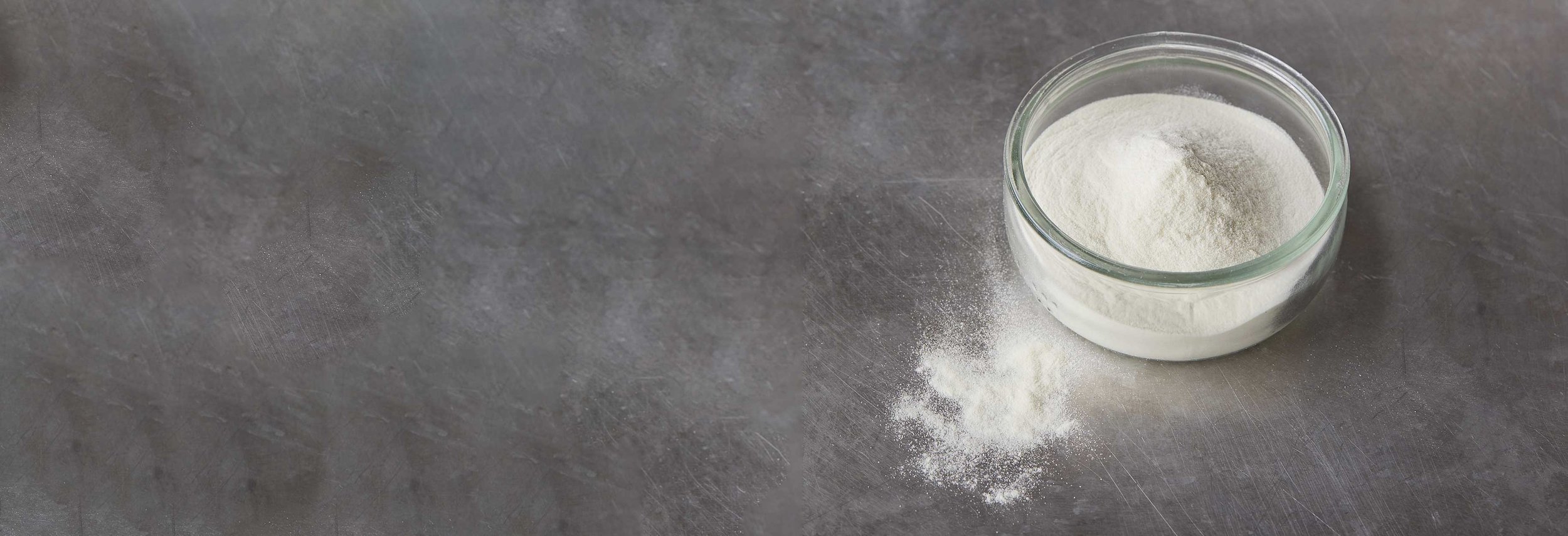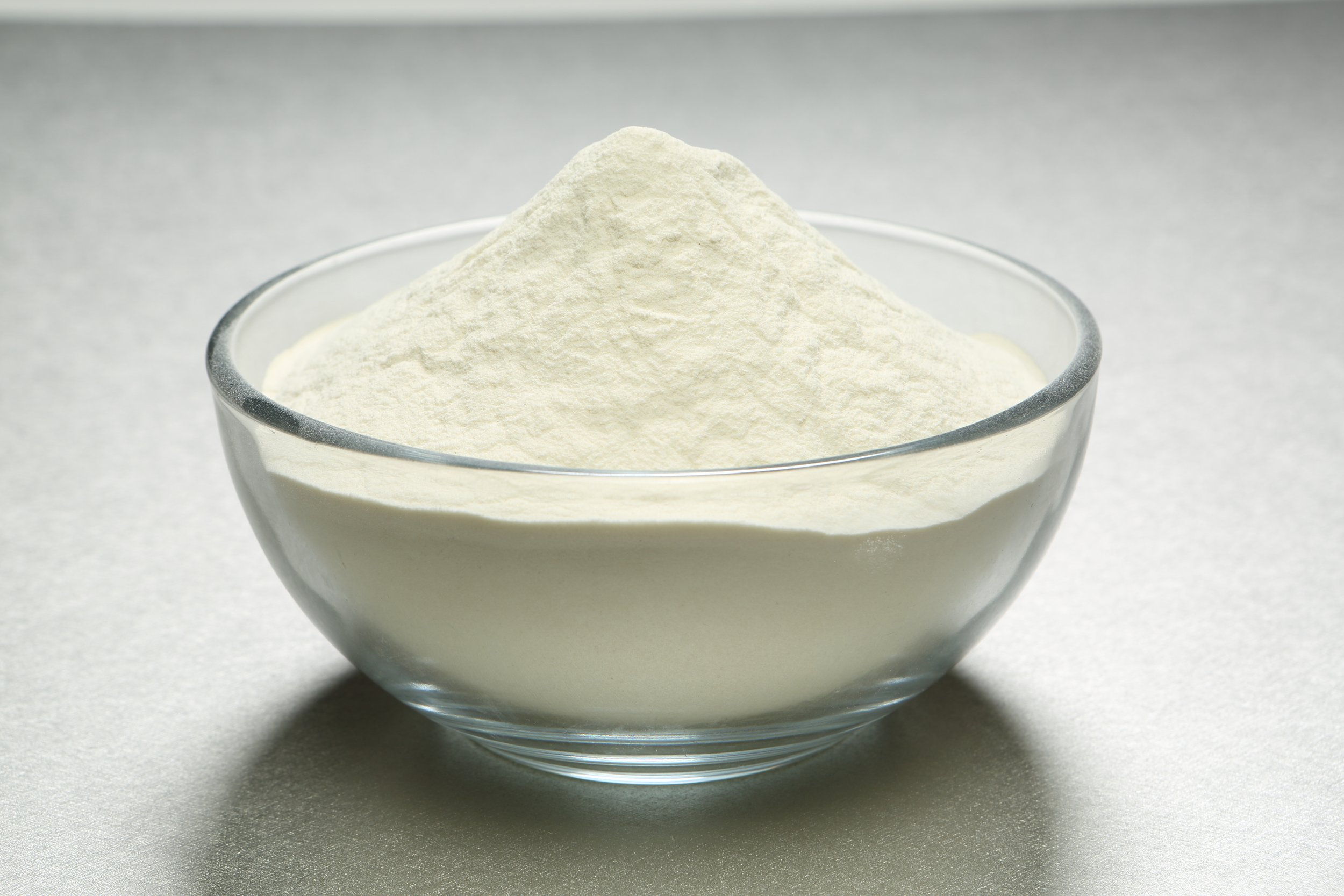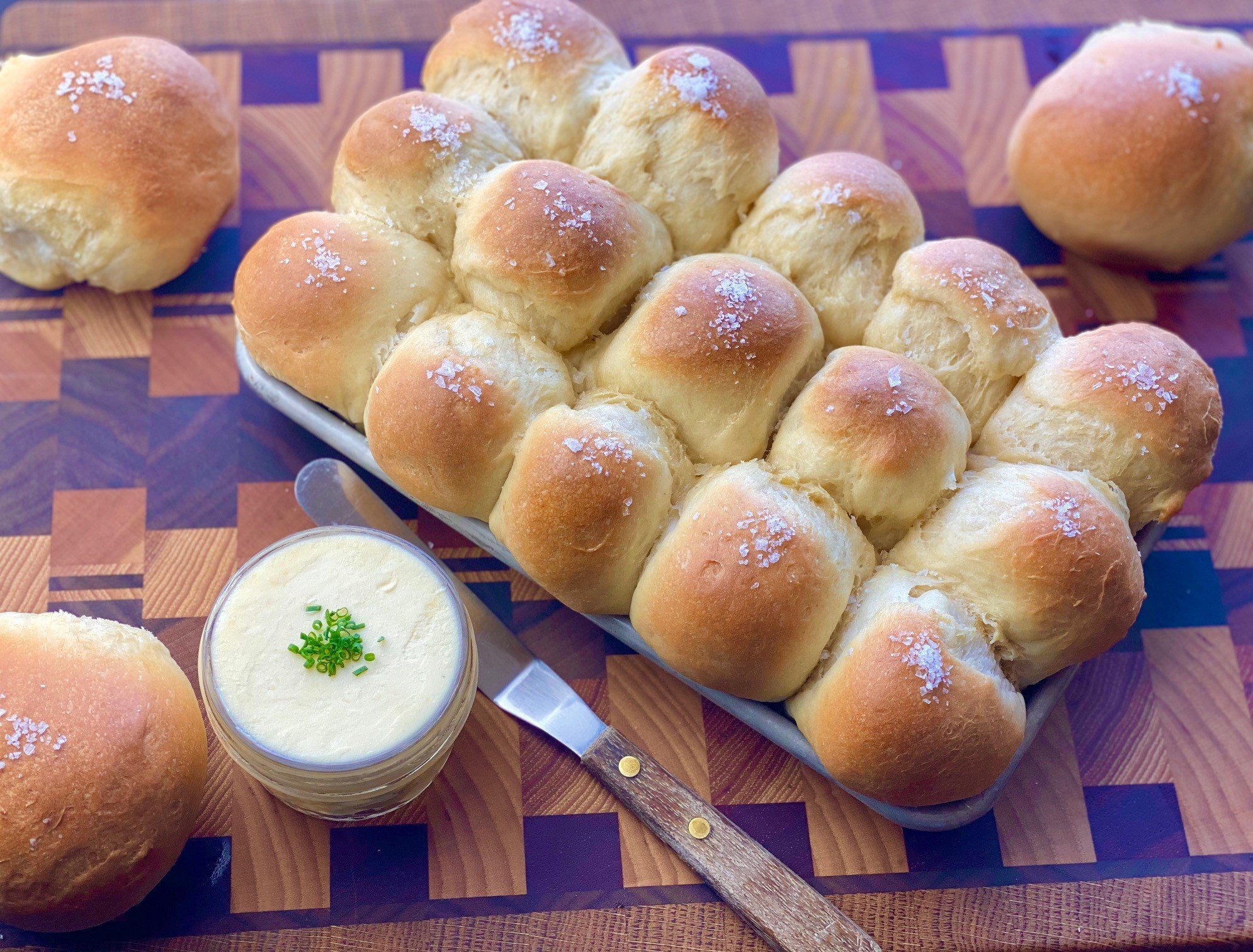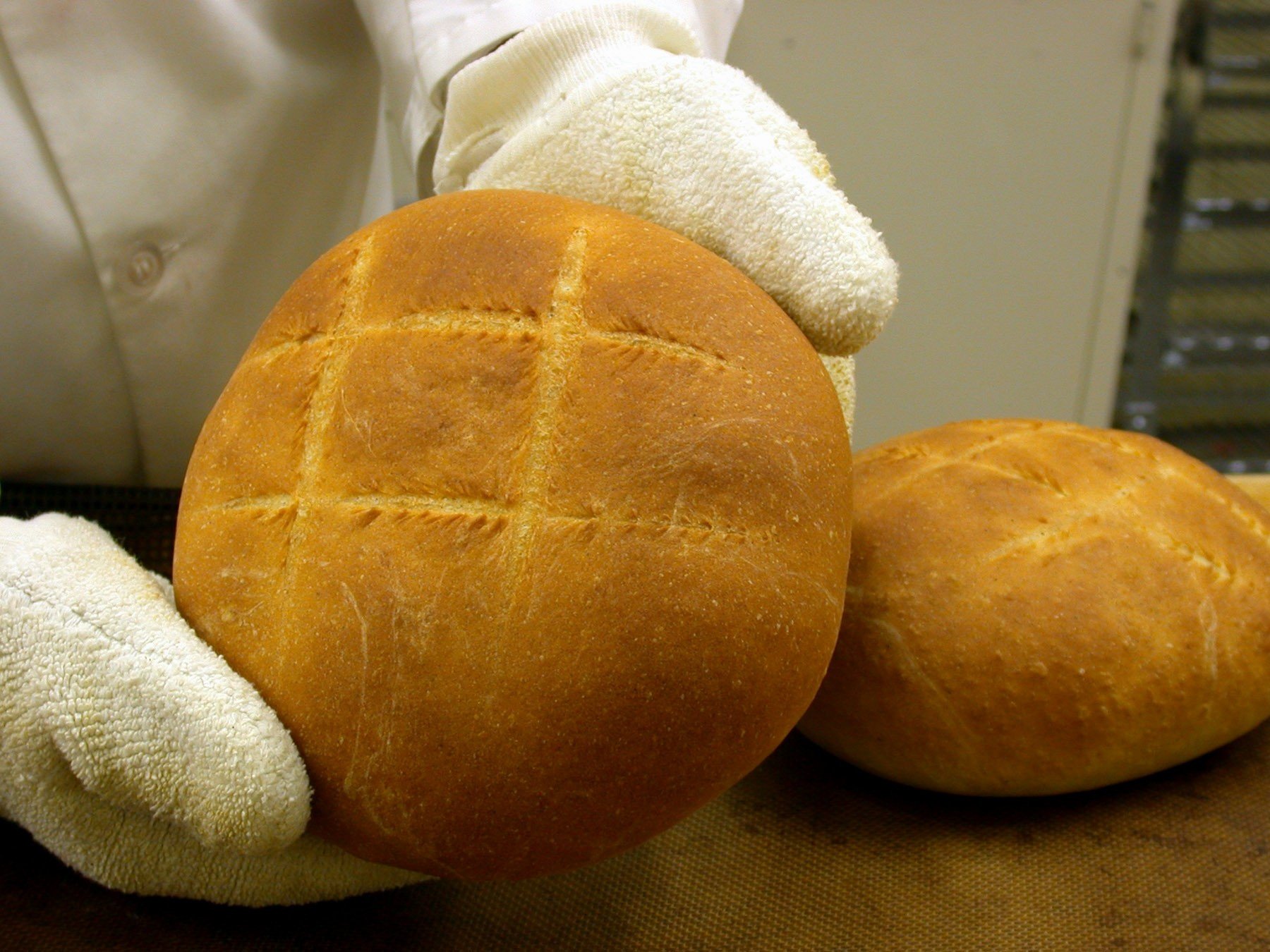
Flour, used as ingredient solutions to meet a variety of food needs.
Dehydrated Potato Flour
Although the use of potato flour has been documented as far back as the 1700’s, most people today would be surprised to learn all of the different products that take advantage of its benefits when incorporating a small percentage of it in their recipes.
In a nutshell, potato flour is milled dehydrated potatoes. There are some differences within the food industry on the differences between potato flour and milled potato flakes. At Idaho Pacific we lean towards the description that potato flour must be additive/processing aid free, just 100% potato; where milled potato flakes can contain additives and processing aids. Regardless of which definition you choose, both are processed similarly, but they do not necessarily function the same. The addition of processing aids like emulsifiers in milled flakes can act to bind up free starch within the product, making it less sticky in comparison to non-additive potato flour.
Different Flour Types
There are many different specifications for potato flour, however, they can be separated into two main groups: Granular and Fine. Which one works best will depend on your product and process.
Granular flour will pass through a 40 mesh (420 micron) screen. Because of the particle size, there are more intact potato cells in this product than the fine potato flour, which translates into slightly less free starch.
Fine flour will pass through an 80 mesh (177 micron) screen. This product mixes well in dry pre-mixes.
Potato flour is used widely in the baking industry as an anti-staling agent or shelf-life extender as well as a dough enhancer. A small amount added to your recipe can add benefits such as:
Improved AdhesionEnhanced BrowningEnhanced TextureAppealing FlavorAppealing AppearanceShelf Life Extender
In addition to baking, other industries such as pet food, meat products, seasonings, soup/sauces, all have successfully incorporated potato flour into their recipes to enhance their products while keeping a clean ingredient declaration.
We would be happy to collaborate with you on how you can improve your products or develop new products using our potato flour.
Flour Uses
Binder
The free starch present in Dehydrated Potato Flour can be used as a binder in meats and other products.
Breading
Dehydrated Potato Flour can be used alone or combined with wheat flour, cornmeal and/or crushed corn flakes to create breading for fish, meat, or vegetables. For fried foods, the use of U.S. dehydrated potatoes lends a crispy texture that is difficult to attain with other breading.
Enhancer (Color)
In baked goods such as breads, rolls and cakes, the addition of Dehydrated Potato Flour can enhance crust color, producing a thicker, darker crust.
Enhancer (Flavor)
Dehydrated Potato Flour can be used to produce potato-flavored snacks and baked goods. When used in bakery products they impart a unique potato flavor and soft mouthfeel to the product. Dehydrated potatoes will produce a unique potato flavor. The potato flavors are mild enough that they complement other flavors in snack foods.
Enhancer (Texture)
Dehydrated Potato Flour will produce products with unique soft eating characteristics (mouthfeel). The addition of potato flour to recipes creates a moister texture for cakes, doughnuts, breads, rolls and pastry items. Added to snacks, they aid in creating a light, crisp texture.
Extender
Dehydrated Potato Flour can be added to burgers or patties before cooking, thus requiring less meat per burger.
Gluten-Free Formulation
Dehydrated Potato Flour can replace gluten-containing ingredients in a range of applications where gluten-free demand runs high.
Shelf Life Extender
At low inclusion levels, Dehydrated Potato Flour serves as an anti-staling or crumb-softening agent in bakery applications, with no alteration of the taste profile. Because of their moisture retention abilities, potato products slow the drying effect associated with staling. Dehydrated potatoes can be used to replace chemical additives used for anti-staling purposes, giving products a clean-label by replacing chemical additives with the natural dehydrated potato ingredient.
Thickening Agent
Potato Flour can be added to broths, gravies, sauces, and stews to thicken. Dehydrated potatoes are much more forgiving than some other flours, which may create lumps.
Uniformity
Dehydrated Potato Flour can be used in salty snacks such as fabricated chips to create a more uniform shape.
Yield Increase
The weight of the added Dehydrated Potato Flour and the resulting absorption increase for hydration may increase dough yield for baked goods.

Let’s Chat
We are here to answer your questions and help you with your ideas.
Production Process
Shelf Life
Average of 12 months from manufacturing date when stored in cool, dry conditions (<30ºC and <65% humidity) in the original packaging. Please refer to your product’s specification sheet as some ingredients and/or packaging may affect that product’s shelf life.










